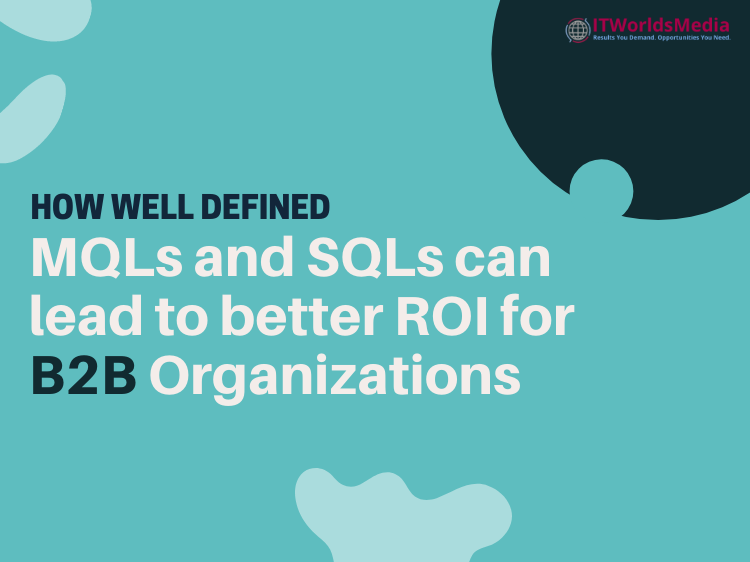 2020-06-30
2020-06-30
How Well-Defined MQLs and SQLs Can Lead to Better ROI for B2B Organizations
Did you know that well-defined MQLs (Marketing Qualified Leads) and SQLs (Sales Qualified Leads) have the potential to impact your lead performance? The deeper the understanding of these elements of the strategy; the better the results! If these parameters are well understood by your marketing and sales teams and agree on most of them; it does have the potential to positively affect your lead performance!
MQL and SQL is deep science which both the marketing and the sales teams need to know really well, as it can truly help solve the B2B lead generation and conversion challenges that have been there for ages in organizations.
Here is a blog that discusses the real problem and the real solution in B2B sales and lead challenges.
The real problem:
Sometimes we try to look for the solution in all the wrong places; whereas it has been right there in front of us the entire time. A similar thing can be applicable to the B2B lead generation challenge.
More often than not, there is a disparity or disagreement over the actual definition of a quality lead and whether an MQL can be qualified enough to be passed on to the sales funnel. When both the teams are on the same page, this gap can be bridged only to start showing surprisingly positive results.
An MQL can be defined as a prospect that has downloaded some content assets or a visitor who has shown some interest in your website or has opened your e-mailer.
However on the other hand an SQL is defined by the sales team as someone who has filled the form on the landing page, or filled in information regarding acquiring a certain service or product. These leads are the real quality leads that the sales team is actually interested in.
What may seem like a good lead to the marketing team may not seem like a good lead to the sales team and this could be a never ending tussle, affecting the overall lead generation and conversion process of the company.
So how can a B2B organization reduce these gaps, so that the sales and marketing teams work in sync and not silos?
The Real Solution:
Why not tread backwards to understand what the sales team thinks is a qualified lead? If you define an MQL based on how the sales team defines a good lead or even an SQL considering the necessary criteria; it could solve the problem.
Identifying leads as marketing qualified leads that actually have the potential to be passed on to the sales funnel or to be qualified as the SQL can be a good solution.
Also, it is best that the MQL criteria is well defined too and needs to be based on real data that is acquired through real prospects and has been sought after mapping each stage of the buyers journey. This makes the lead more authentic and has higher chances of qualifying as a sales lead; one that can be easily converted.
Understanding the sales criteria of qualifying leads should also be important to the marketing team so that they know what the sales team is expecting. Likewise, valuable inputs from the sales team are paramount in qualifying the MQLs as good leads.
Conclusion:
Several B2B organizations waste their time in searching for answers to questions such as why are the leads not converting; why did a good lead turn into a cold lead, why were bad quality leads passed on to the sales teams and many more. However; what they fail to understand is that the answers lie in collaboration. If the marketing and sales teams work in collaboration understanding each other’s expectations; there would not be as many challenges as they appear to exist in any B2B organization for generating and converting leads.
